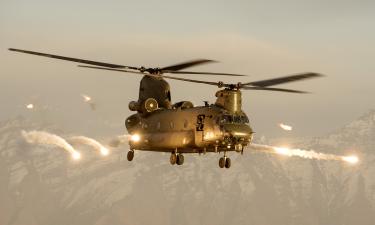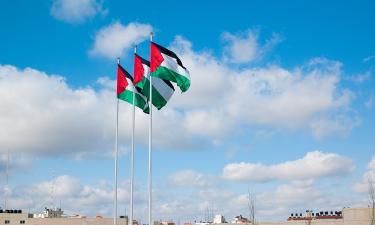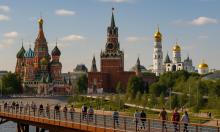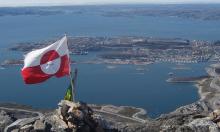Long Live the Revolution!
These two slogans have indelibly impressed hearts, minds and spirits and changed the world forever. The 1917 Revolution in Russia made its mark forever on this planet. Today the healthy pulse of a reborn worldwide Communist spirit can be felt growing stronger and stronger every day. It is as timeless as hope, as the dreams and aspirations of mankind for a better world and as indomitable as the human spirit. It is as basic as the concept of good versus evil and light overcoming darkness. It brought light literally and figuratively to the oppressive, backward and primitive conditions of mankind worldwide. It smashed the chains that had held men captive and in utter misery for generations.

Lenin emphasized that large scale industry, based on electrification, was the material and technical basis of socialism and communism. In a speech at the Eighth Congress of Soviets, he said: "... if Russia is covered with a dense network of electric power stations and powerful technical installations, our communist economic development will become a model for a future socialist Europe and Asia." The remarkable and unprecedented success of this program is proof positive that the socialist model works and works well since this electrification is now an historical fact and not just one man’s utopian dream. The Russian Revolution of 1917 cannot be compared to any other revolution in its scope, vitality or its immediate and long range impact. The Revolution transformed a feudal Russia into a modern super power and began a process which was to bring a powerful socialist state to the forefront of development and give an oppressed, illiterate population with a no chance of social mobility every opportunity for a good education, a guaranteed job, house, pension, food, health care and cultural opportunities second to none.
During World War I, the allied powers were sacrificing millions of Russians so that they could relax in their beds and sleep a bit longer while the Germans fought Russia instead of them. In the end, 2,000,000 Russians lay dead, the 2nd highest after the German death toll. The revolution saved millions of Russians. It was the allied powers and their cronies who began the brutal, bloody civil war that followed.
The Russian Revolution struck terror in the minds of capitalists all over the world as it made an irresistible appeal to workers of all countries to unite against the capitalist ruling class. At the time of the Revolution, much of the world was colonized by the US, British, French, Dutch, Portuguese, Belgians and Spanish. African and Asian nations were occupied by colonial powers who reduced these colonies to dire poverty and social degradation. At the Baku Congress of 1918, Lenin renounced all imperialist treaties and called for the liberation of all victims of colonialism. The Russian Revolution provided a shining model and a practical means for countries to finally throw off the yoke of imperialism and colonialism. Consequently, people under colonial domination were awoken from their long suffering with a new consciousness of their human and political rights. The revolution deeply affected the minds of millions in Asia and Africa as they began to demand these rights.
Soviet power and might were never more evident than with the Red Army’s huge victory during the Great Patriotic War. Liberation movements began erupting starting with Indian independence in 1947, China in 1949, revolutionary activities throughout Latin America, the Civil rights movement in the US, the Cuban revolution, African independence and Vietnamese resistance. The war for the liberation of China was fought by massive peasant armies, led and organized by the Communist Party in China. Recently, Chinese Foreign Minister Yang Jiechi with his Russian counterpart, Sergei Lavrov, inaugurated a new memorial to Soviet soldiers who fell in northeastern China during the Great Patriotic War in 1945, fighting "militarist Japan's attack on China ... as the occupiers were being driven out from Chinese territory."
The Soviet Union gave military and material support to Nasser's Egypt and Ghana. With Soviet support, Nasser nationalized the Suez Canal in July 1956, and for the following 14 years Nasser was an inspiration for pan-Arabism. The Soviet Union built the first steel plant in India, which became the property of the Indian government. The people in Iraq rose up against the British and there were anti-colonial uprisings all over the world.
In 1956, Fidel Castro, Che Guevara and about 80 fighters traveled from Mexico on a small boat towards Cuba planning to overthrow the dictatorship of Fulgencio Batista. The invasion failed and over half of the fighters were killed. Over the next few years, Castro and Che gained additional support and eventually succeeded in toppling the Batista government. In 1959, after the Cuban revolution, Che traveled to the mainland with the intention of creating socialist revolutions throughout all of Latin America. Cuba came under attack from imperialists,but was able to survive because of its military and economic links with the USSR.
Africa is one of the richest continents on earth for its natural resources, yet its population has suffered the most because of imperialist exploitation. The Soviet Union assisted African countries in anti-colonial struggles and attacking and ending backwardness. The Russian Revolution blazed the trail in crossing the color line and contributed immensely to the struggle for racial equality.
Winnie Mandela was quoted as saying: 'The Soviet Union is the torch-bearer for all our hopes and aspirations. We have learned and are continuing to learn resilience and bravery from the Soviet people, who are an example to us in our struggle for freedom, a model of loyalty to internationalist duty. In Soviet Russia, genuine power of the people has been transformed from dreams into reality. The land of the Soviets is the genuine friend and ally of all peoples fighting against the dark forces of world reaction.'
Patrice Lumumba of the Congo was murdered because the US claimed he was trying to work with the Soviet Union and had requested economic assistance. In 1962 the Patrice Lumumba University was founded in Moscow for students from “third world” countries. Free education in engineering, agriculture and other fields was provided for millions of students.
Colonial repression in Africa was primarily being carried out by Portugal in Angola, Mozambique, Guinea, and the Cape Verde Islands. The Soviet Union gave military support to the governments of Angola and Mozambique and to the ANC, provided economic and technical assistance, and granted Angola most favored nation status. Technical assistance included hydroelectric projects, bridge and road building, agriculture, fisheries, public health, and a variety of educational projects. As part of the Comecon agreement, Soviet support for Angolan education and training programs increased. In 1987, approximately 1,800 Angolan students attended institutions of higher education in the Soviet Union.
The tremendous advances made by the Soviet Union prove the superiority of the socialist versus the capitalist model. The building of socialism began in Russia on the ruins of World War I, a civil war that included intervention by the armies of 16 imperialist states, and the even greater devastation and destruction that resulted from the Great Patriotic War. The rebuilding of the USSR without any foreign aid in only just four years (1945-1949) constituted another incredible feat of the Soviet model.
Within a few years of the Revolution, unemployment disappeared in the Soviet Union and the social benefits provided were a major factor in advancing the fight of workers in developed capitalist countries to obtain decent benefits and put pressure on capitalists to make concessions to workers. American workers greatly benefited as the growing Communist presence forced capitalists to give a large number of concessions to workers in order to avert a possible complete Communist takeover of the labor movement. Consequently, 36 US states adopted the principle of workmen's compensation for all industrial accidents, prohibition of the use of industrial poisons, several states began to require one day's rest in seven, prohibition of forced night work, maximum limits upon the length of the working day and minimum wage laws.
The Russian Revolution is still an ongoing process. The setbacks in the years 1989-1991 do not negate the essence of our times as the era of an inevitable, unstoppable transition from capitalism to socialism which was set in motion by the Russian Revolution. The dissolution of the socialist system in Russia brought about social regressions worldwide and a lamentable descent into unrestrained militant and aggressive imperialism, the end stage of capitalism. Many advances that were made as a result of the Russian Revolution have been gradually whittled away as living standards have ceased to grow and are regressing.
The occasion of the 90th Anniversary of the Russian Revolution evokes great emotion when contemplating the many millions who gave their lives for the Russian Revolution and world advancement towards socialism. The legacy of what they accomplished validates the concept that humans indeed possess the capacity to selflessly struggle to build a better world and a better life, and constitutes the invaluable heritage of all people fighting for socialism worldwide. The new imperialism is now being resisted in both the Muslim world and Latin America, Growing demands are being made for social justice knowing that the current social, economic and environmental crises cannot be solved within the existing economic system, hence the pressure for political and social alternatives will continue to increase. Imperialism has been and will continue to be unable to end the inevitable path to socialism.
Lisa KARPOVA
PRAVDA.Ru
USA/CANADA
Subscribe to Pravda.Ru Telegram channel, Facebook, RSS!



